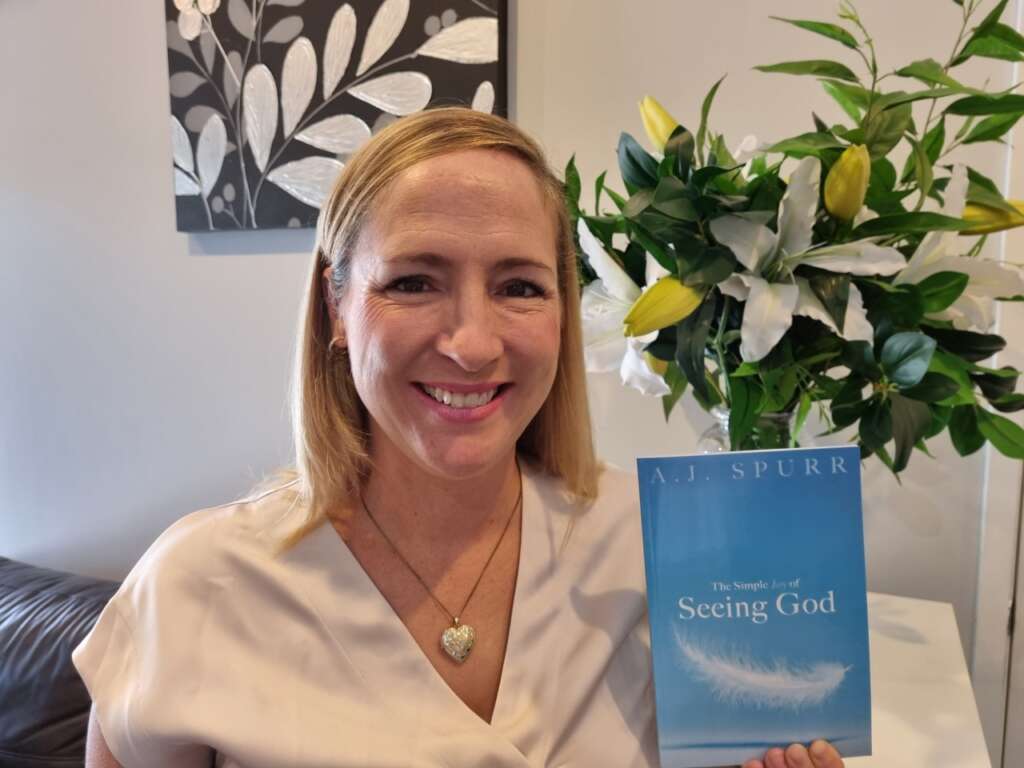Recently, I interviewed a young man who had been struggling with addiction since the age of 12. He had completed a program at a Christian rehab centre and while he was there, he encountered Jesus. “The first thing I noticed,” he said, “was that I could feel the breeze on my skin. I’d never experienced it before, even though it had been happening the whole time. I was finally able to feel it.”
So, what had changed?
Romans 12:2 explains that you’re transformed as you renew your mind. But how does one go about doing that?
‘You’re blessed when you get your inside world – your mind and heart – put right. Then you can see God in the outside world.’ Matthew 5:8 (MSG)
Have you ever watched a newborn discover their hand for the first time? It’s mesmerising. They slowly turn their wrist, then watch in wonder as each finger, one by one, moves by the power of their mind, their eyes as wide as dinner plates at the sheer wonder of it. Then they discover their feet and toes and the slow, awe-filled dance continues.
But then one day, their hands and feet are just ‘there.’ No longer mesmerising, just existing without fanfare.
A while ago, a friend severed the top of his finger and it had to be surgically reattached. His whole finger was wrapped up tight for weeks while it healed. When it was finally unwrapped, his fingertip was so sensitive to touch, like electricity running through his hand, and he had to get used to it all over again. I imagine that’s what it feels like for newborns; every touch is like electricity until their brain and senses adapt.
We have to consciously make an effort to notice, and strive not to lose the wonder in the familiar.
The fact is if we spent our days staring at the wonder of our hands, and feeling electricity at every touch, we wouldn’t get very much done, so our brains have a ‘block out’ system, ensuring we only notice what’s ‘necessary’ at the time. It’s why you can drive home from work and have no recollection of the journey. Your brain is on ‘auto-pilot’ in familiar surroundings. But it’s on high alert, taking in every street name and landmark when you’re driving in unfamiliar territory. Put simply, if we took in every piece of information thrown at us each day, our brains would not cope.
It means that noticing things that have become familiar doesn’t come easily. We have to consciously make an effort to notice, and strive not to lose the wonder in the familiar. Being transformed, as it were, by the daily renewing of our minds (Romans 12:2).
So, what does a breeze have to do with seeing God? Well, what if I told you that God is speaking to you every day through his creation?
‘See the marvels of God! He plants flowers and trees all over the earth… “Step out of the traffic! Take a long, loving look at me, your High God, above politics, above everything.”’ Psalm 46:8-10 (MSG)
Your whole outlook on the world changes when you literally stop to smell the roses. Stand under a canopy of trees and recognise the creativity that went into designing each leaf, and the delight God must have felt as he crafted each of the colourful birds chattering among the branches, and taught them to weave elaborate nests, miraculously engineered to survive summer storms.

Annette Spurr with her new book
I explain more about the science behind ‘God encounters’ in my book, The Simple Joy of Seeing God. As a freelance writer, I’ve been blessed with incredible opportunities to write blogs and articles about a variety of fascinating topics. One of my favourite projects has been researching and writing articles for Australia’s National Day of Thanks, for more than a decade. What I learned about the power and spiritual significance of gratitude during that time has changed my life.
I’ve also interviewed countless ex-prisoners and people who have overcome drug and alcohol addiction, whose lives were transformed when they experienced personal encounters with Jesus.
Time after time, they speak about how so many of us on the ‘outside’ are living in prisons we’ve created for ourselves. Prisons of unforgiveness, fear, anger and hate. So, my book is about seeing God, who is beautiful, learning to see his invisible qualities (Romans 1:20) and being aware of his presence in every circumstance.
When the psalmist says, ‘Be still and know that I am God,’ here’s what it really means …
A while ago, I was struggling with anxiety as I walked through a particularly stressful season in my life. I felt the weight of the world on my shoulders, literally causing pain in my back and neck. My heart racing, tears flowing, I stepped outside and lay down on the thick carpet of grass in our backyard. As I lay still, gazing upwards, slowly, the thoughts in my head quietened, and for the first time in a long time, I started to hear birds happily chirping as they flittered to-and-fro, and the wistful hum of bees as they gathered around a tree bloom. A sense of peace and lightness came over me. “Now,” his familiar voice gently whispers, “now I have your attention.”
‘Keep your eyes open for God, watch for his works; be alert for signs of his presence.
Remember the world of wonders he has made.’ Psalm 105:4-5 (MSG)
Email This Story
Why not send this to a friend?



